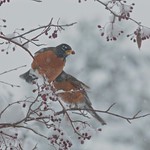 While trying to determing the winter version of adjectives like vernal (spring-related) and autumnal (autumn-related) for a facebook comment [FYI: it’s hibernal. And summer's adjective is estival], I came across a list of seasons I hadn’t previously encountered. According to Wikipedia, the ecologists have designated their own seasonal divisions, and they’ve come up with six of them, rather than four.
While trying to determing the winter version of adjectives like vernal (spring-related) and autumnal (autumn-related) for a facebook comment [FYI: it’s hibernal. And summer's adjective is estival], I came across a list of seasons I hadn’t previously encountered. According to Wikipedia, the ecologists have designated their own seasonal divisions, and they’ve come up with six of them, rather than four. 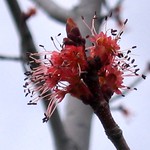 Being ecologists, they use occurrences in the local ecosystem to cue us that we’ve switched seasons, as opposed to cues from our orbit about the sun (as astronomers do) or from weather history (as meteorologists have). Here’s what Wikipedia has to say about the seasonal designations that ecologists use for temperate climates:
Being ecologists, they use occurrences in the local ecosystem to cue us that we’ve switched seasons, as opposed to cues from our orbit about the sun (as astronomers do) or from weather history (as meteorologists have). Here’s what Wikipedia has to say about the seasonal designations that ecologists use for temperate climates: - Vernal (spring): Begins March (mild temperate), April (cool temperate). Tree buds burst into leaves. Birds establish territories and begin mating and nesting.
- Estival (high summer): Begins June in most temperate climates. Trees in full leaf. Birds hatch and raise offspring.
- Autumnal (autumn): Generally begins mid to late September. Tree leaves in full color then turn brown and fall to the ground. Birds migrate back to wintering areas.
- Hibernal (winter): Begins December (mild temperate), November (cool temperate). Deciduous trees are bare and fallen leaves begin to decay. Migrating birds settled in winter habitats.
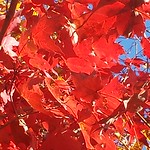
As someone who has grown up in the Midwestern US, I really like this. The 4 season model never quite seemed to capture what was really going on. How could autumn continue into December, if most of the leaves had already fallen before mid-November? And I’m really supposed to believe that April, May and June belong to the same season? Anyone living in Wisconsin can tell you that this is patently nonsensical!
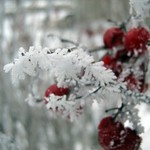 The down side is that there's no calendar date for the start of a season, and probably no cut and dried beginning or ending to any season. So if spring comes early one year, it comes early. There's no first day of spring, just cues from the world around you. This may be why they've set their seasons up as adjectives rather than nouns. There might be some disagreement as to whether Spring is here, but we can all agree it's becoming more Vernal. As a gardener, this approach just feels right to me.
The down side is that there's no calendar date for the start of a season, and probably no cut and dried beginning or ending to any season. So if spring comes early one year, it comes early. There's no first day of spring, just cues from the world around you. This may be why they've set their seasons up as adjectives rather than nouns. There might be some disagreement as to whether Spring is here, but we can all agree it's becoming more Vernal. As a gardener, this approach just feels right to me.
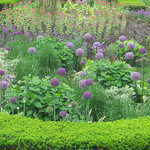
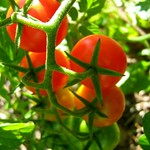
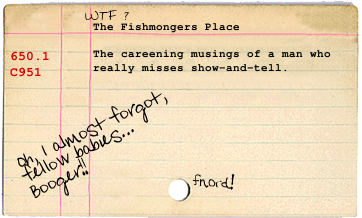
No comments:
Post a Comment